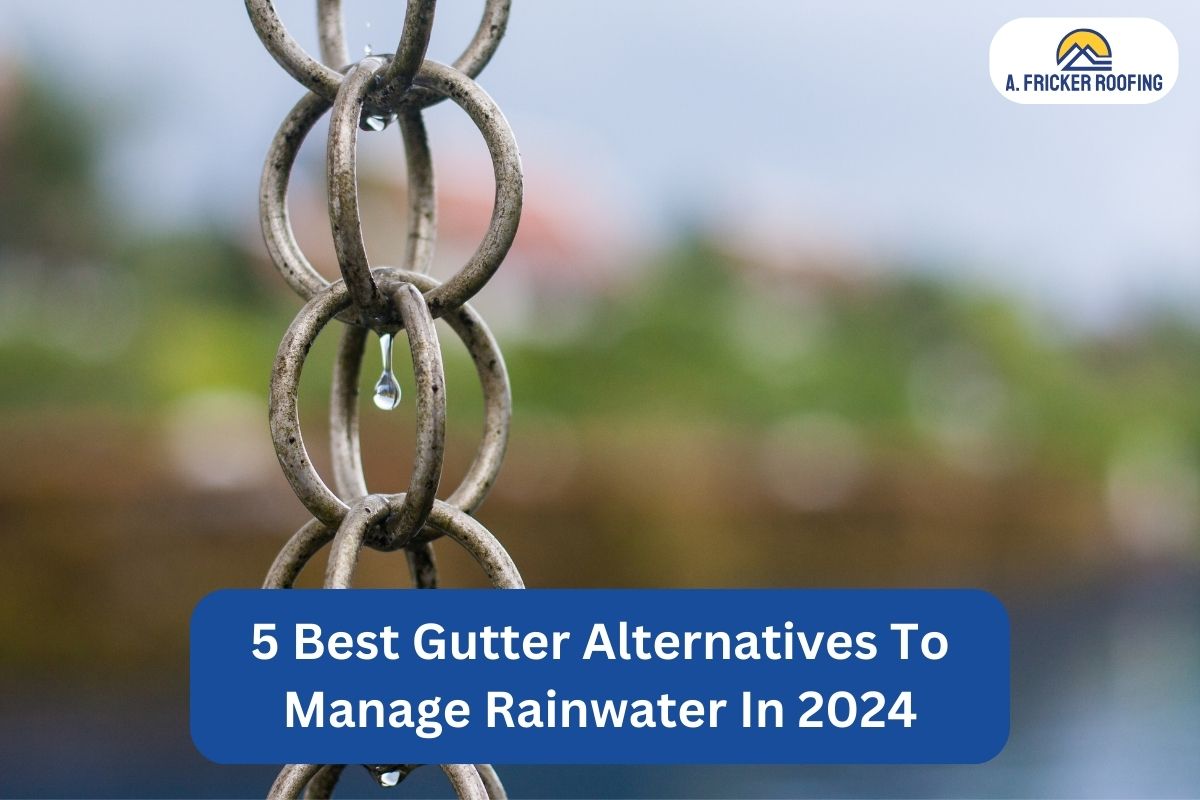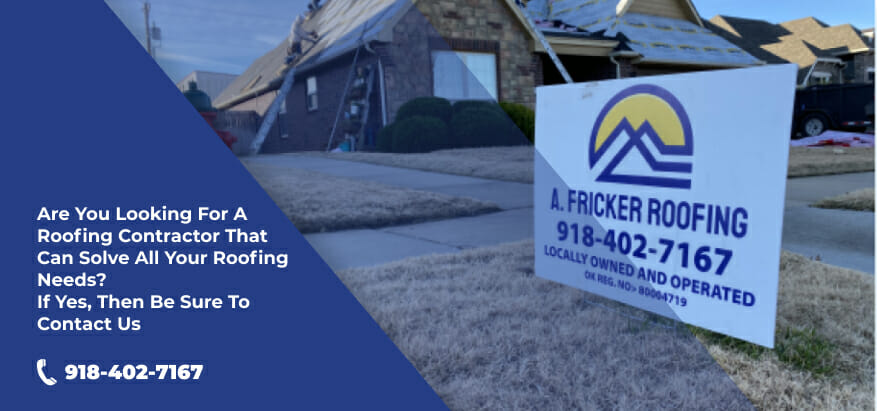Traditional gutters aren’t always the perfect fit for all properties due to their maintenance demands and potential for clogging. They can become troublesome for property owners, requiring expensive repairs if not properly installed. Therefore, in this blog post, we have brought you the five best gutter alternatives to traditional systems for proper rainwater drainage. From beautifully designed drip paths to hidden gutter systems, we have listed a variety of options for you to explore. Read this blog post through the end to make an informed decision.
1. Drip Path
Looking to replace the traditional gutter system at your place? Enter the concept of a drip path.
Drip paths, simply put, are a smart method that directs rainwater away from the foundation of your home without using gutters. It’s essentially a narrow strip filled with gravel or rock bordering your home. This technique uses gravity to keep water from the foundation while mitigating soil erosion around the property.
Advantages and Drawbacks of Using a Drip Path System
There are several reasons why many homeowners are adopting this modern and efficient gutter alternative:
Pros:
- Low Maintenance: The absence of gutters means less time spent cleaning out leaves, debris, and other blockages that clog typical gutter systems.
- Aesthetic Appeal: A well-integrated drip path can contribute positively to landscape design. It enhances overall curb appeal, often blending seamlessly into the exterior of your home.
- Prevents Erosion: By facilitating better water management, drip paths mitigate soil erosion that can potentially damage landscapes around houses after heavy rainfall.
Cons:
- Expensive to Set Up: If you have a larger home, it can be expensive to install a drip line due to the amount of material needed to completely surround the foundation.
- Some Maintenance: While they need less attention compared to gutters, drip lines do need some maintenance to remain functional.
In essence, if you’re seeking lower maintenance, better aesthetics, and more efficient erosion control without paying a fortune, a drip path system is your answer.
2. Rain Chains

Rain chains, as the name suggests, are a sequence of metal cups or linked chains designed to guide rainwater from your roof down to ground level. The rain chains essentially direct this water into a collection barrel or garden bed. Apart from its basic functional role, it also contributes to an elevated home exterior aesthetic.
Moreover, due to their captivating visual appeal, rain chains are becoming increasingly popular throughout the U.S.
Pros and Cons of Installing Rain Chains
As with all things, rain chains have both benefits and drawbacks that homeowners must be aware of.
Pros:
- Visual Appeal: They offer an aesthetically pleasing alternative over typical gutter downspouts.
- Easy Installation: Compared to conventional gutters, they require far less labor for installation.
Cons:
- Limited Capacity: In areas prone to heavy rainfall, their limited diversion capacity could be a problem.
- Maintenance: Regular upkeep is essential to avert blockages from leaves and other debris.
- Cost Factor: Certain rain chains feature intricate designs or artwork, making purchasing them a more costly expenditure.
However, rain chains are more than just functional components, they contribute to a beautiful outdoor space by creating an enjoyable visual and auditory experience.
3. French Drain System

French drain systems are an often overlooked but highly effective method of water management. These systems are a great alternative to gutters because they can divert surface water away from the base of your property.
Originating in the 19th century, Henry French discovered the simplicity and effectiveness of this drainage method. A French drain system includes an inclined trench filled with gravel or rock, and it may also contain a perforated pipe that directs water away from vulnerable areas. Think of it like a natural sump pump.
Gravity guides water down through the materials and into the pipeline, where it is redirected safely, keeping your home dry and your mind at ease.
Benefits and Limitations of French Drains
Benefits:
- Efficiency: Nothing beats how effectively French drains can move water away from your property. They are purposely built to deal with heavy rainfall.
- Aesthetics: If you appreciate landscape aesthetics while managing rainwater, a French drain system is a way to go.
- Versatile: You can install these drains virtually anywhere on your property. From gardens to patios — they’ve got you covered!
Cons:
- Installation Hassle: Unlike regular gutters, installing a French drain is sometimes invasive and extensive, as it includes digging up parts of your lawn.
- Pricey: The price tag associated with French drains can be higher than traditional gutters due to the complexity of their installation, among other factors.
4. Grading for Water Management
Rainwater management is a crucial part of home maintenance that requires careful attention. Instead of traditional gutters, many homeowners are turning to yard grading as an effective gutter alternative. This unique approach to redirecting water flow is worth considering.
Yard grading involves adjusting the slope of your land to guide rainwater away from your house foundation and toward designated areas, such as gardens, storm drains, or just an open space.
Yard grading is especially important when gutters are not present or are inadequate. Poor drainage systems can lead to basement floods and soil erosion around the house foundation, causing instability and the growth of mold due to excessive dampness. On the other hand, effective yard grading can safeguard your property from these potentially costly damages.
Benefits and Challenges of This Gutter Alternative
Benefits
1. Cost-Effective: If performed correctly, yard grading is a one time investment and alternative to gutters that helps manage rainwater effectively at a considerably lower cost.
2. Environmentally Friendly: By directing rainwater towards desired locations like flower beds or lawns instead of city drains, you contribute positively to groundwater replenishment.
Challenges
However, just like any other system alternatives, yard grading does come with its unique hurdles.
1. Extensive Labor and Time: Installing yard grading can be labor intensive and time-consuming – necessitating heavy machinery for land adjustments in some cases.
5. Hidden Gutters
When considering gutter alternatives, the hidden gutter system is a strong alternative to gutters. Despite the name, there’s nothing particularly hidden about these systems. They are called ‘hidden’ because they integrate seamlessly into your roof’s architectural design. This type of water management tool can provide an aesthetically pleasing solution while effectively diverting rainwater away from your property.
Essentially, these are integral lines or channels built directly into the roofing structure itself rather than visible fixtures attached to the exterior of a house. Primarily constructed for their low-profile appearance, hidden gutters aim to offer functionality without compromising visual appeal.
Advantages and Considerations for Hidden Gutters
Advantages:
1. Aesthetics Considerations: There are numerous advantages of opting for hidden gutters. They streamline the exterior aesthetics of your home.
2. Less Prone to Damage: Largely unaffected by harsh weather conditions due to their embedded placement, they tend not to suffer from wind damage as externally fitted gutters might.
3. Integral Installation and Durability: Moreover, unlike more conventional gutters that require bracketed attachments and often sag over time under heavy rainfall — built-in gutters boast impressive durability thanks to their integral installation.
Though there are numerous perks associated with installing this rain gutter alternative, like anything, it isn’t entirely free of issues. These alternatives to gutters include challenges tied specifically to their concealed location that might affect their overall accessibility.
Challenges:
1. Hefty Price Tag Upfront: Built-in or hidden gutter systems can come with higher price tags compared to standard gutters.
2. Installation Complexities: Their installation requires professional installers well-versed in roofing design architecture, therefore leading to a costlier project.
3. Maintenance Challenges: The concealed location means they are harder to access for routine maintenance, including cleaning and repairing minor issues.
Contact A. Fricker Roofing and Waterproofing In Tulsa, OK, To Install Your Gutter System
If you want to install rain gutter alternatives on your home or commercial building, contact the professional and skilled installers at A. Fricker Roofing and Waterproofing in Tulsa, OK. Our roofers will assess your property, your home’s requirements for proper water drainage, and walk you through suitable gutter alternatives. Contact us today at (918) 402-7167 and consult expert installers.

